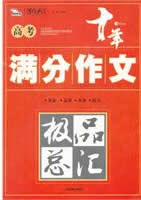A. a Youtheater
B. an art museum -
C. a natural history museum
D. a hands-on science museum
57. What can kids do at a Youtheater?
A. Look at rock collections.
B. See dinosaur models.
C. Watch puppet making.
D. Give performances.
58. What does "hands-on science" mean in the last paragraph?
A. Science games designed by kids.
B. Learning science by doing things.
C. A show of kids' science work.
D. Reading science books.
59. Where does this text probably come from?
A. A science textbook.
B. A tourist map.
C. A museum guide.
D. A news report.
B
Honey from the African forest is not only a kind of natural sugar, it is also delicious.
Most people, and many animals, like eating it. However, the only way for them to get that
honey is to find a wild bees' nest and take the honey from it. Often, these nests are high up in
trees, and it is difficult to find them. In parts of Africa, though, people and animals looking for
honey have a strange and unexpected helper - a little bird called a honey guide.
The honey guide does not actually like honey, but it does like the wax in the beehives (蜂房). The little bird cannot reach this wax, which is deep inside the bees' nest. So, when it finds a suitable nest, it looks for someone to help it. The honey guide gives a loud cry that attracts the attention of both passing animals and people. Once it has their attention, it flies through the forest, waiting from time to time for the curious animal or person as it leads them to the nest. When they finally arrive at the nest, the follower reaches in to get at the delicious honey as the bird patiently waits and watches. Some of the honey, and the wax, always falls to the ground, and this is when the honey guide takes its share.
Scientists do not know why the honey guide likes eating the wax, but it is very determined in its efforts to get it. The birds seem to be able to smell wax from a long distance away. They will quickly arrive whenever a beekeeper is taking honey from his beehives, and will even enter churches when beeswax candles are being lit.
60. Why is it difficult to find a wild bees' nest?
A. It's small in size.
B. It's hidden in trees.
C. It's covered with wax.
D. It's hard to recognize.
61. What do the words "the follower" in Paragraph 2 refer to?
A. A bee.
B. A bird.
C. A honey seeker.
D. A beekeeper.
62. The honey guide is special in the way .
A. it gets its food
B. it goes to church
C. it sings in the forest
D. it reaches into bees' nests
63. What can be the best title for the text?
A. Wild Bees
B. Wax and Honey
C. Beekeeping in Africa
D. Honey-Lover's Helper
C
About twenty of us had been fortunate enough to receive invitations to a film-studio(影棚)to take part in a crowd-scene. Although our "act" would last only for a short time, we could see quite a number of interesting things.
We all stood at the far end of the studio as workmen prepared the scene, setting up trees at the edge of a winding path.Very soon, bright lights were turned on and the big movie-camera was
wheeled into position. The director shouted something to the camera operator and then went to speak to the two famous actors nearby. Since it was hot in the studio, it came as a surprise to us to see one of the actors put on a heavy overcoat and start walking along the path. A big fan began blowing tiny white feathers down on him, and soon the trees were covered in "snow". Two more fans were turned on, and a "strong wind" blew through the trees. The picture looked so real that it made us feel cold.
The next scene was a complete contrast(对比).The way it was filmed was quite unusual. Pictures taken on an island in the Pacific were shown on a glass screen. An actor and actress stood in front of the scene so that they looked as if they were at the water's edge on an island. By a simple trick like this, palm trees, sandy beaches, and blue, clear skies had been brought into the studio!
Since it was our turn next, we were left wondering what scene would be prepared for us. For a full three minutes in our lives we would be experiencing the excitement of being film ”Stars”!
64. Who is the author?
A. A cameraman.
B. A film director.
C. A crowd-scene actor
D. A workman for scene setting
65. What made the author feel cold?
A. The heavy snowfall.
B. The man-made scene.
C. The low temperature.
D. The film being shown.
66. What would happen in the "three minutes" mentioned, in the last paragraph?
A. A new scene would be filmed.
B. More stars would act in the film.
C. The author would leave the studio.
D. The next scene would be prepared.
D
Grown-ups are often surprised by how well they remember something they learned as children but have never practiced ever since. A man who has not had a chance to go swimming for years can still swim as well as ever when he gets back in the water. He can get on a bicycle after many years and still ride away. He can play catch and hit a ball as well as his son. A mother who has not thought about the words for years can teach her daughter the poem that begins "Twinkle, twinkle, little star" or remember the story of Cinderella or Goldilocks and the Three Bears.
One explanation is the law of overlearning, which can be stated as follows: Once we have learned something, additional learning trials increase the length of time we will
Remember it
In childhood we usually continue to practice such skills as swimming, bicycle riding, and
playing baseball long after we have learned them. We continue to listen to and remind
ourselves of words such as "Twinkle, twinkle, little star" and childhood tales such as
Cinderella and Goldilocks. We not only learn but overlearn.
The multiplication tables(乘法口诀表)are an exception to the general rule. that we
forget rather quickly the things that we learn in school, because they are another of the things
we overlearn in childhood.
:: The law of overleatning explains why crammingJ(突击学习)for an examination, though
it may result in a passing grade, is not a satisfactory way to learn a college course. By
cramming, a student may learn the subject well enough to get by on the examination, but he is
likely soon to forget almost everything he learned. A little overlearning, on the other hand, is
really necessary for one's future development.
67.What‘the main idea of Paragraph 1
A. People remember well what they learned in childhood.
B. Children have a better memory than grown-ups.
C. Poem reading is a good way to learn words.“
D. Stories for children are easy to remember.
68. The author explains the law of overlearning by
A. presenting research findings
B. setting down general rules
C. making a comparison
D. using examples
69. According to the author, being able to use multiplication tables is
A. a result of overlearning
B. a special case of cramming
C. a skill to deal with math problems
D. a basic step towards advanced studies
70.What is the author's opinion on cramming?
A. It leads to failure in college exams.
B. It's helpful only in a limited way.
C. It's possible to result in poor memory.
D. It increases students' learning interest.
 ,我们将会及时处理。
,我们将会及时处理。 | 典藏 运用 改变 提高.. 定价:¥48.00 优惠价:¥48.00 更多书籍 |
 | 近几年,高校自主招生考试已成为高考的一种重要的补充形式,日益受到考生、社会.. 定价:¥45.00 优惠价:¥45.00 更多书籍 |